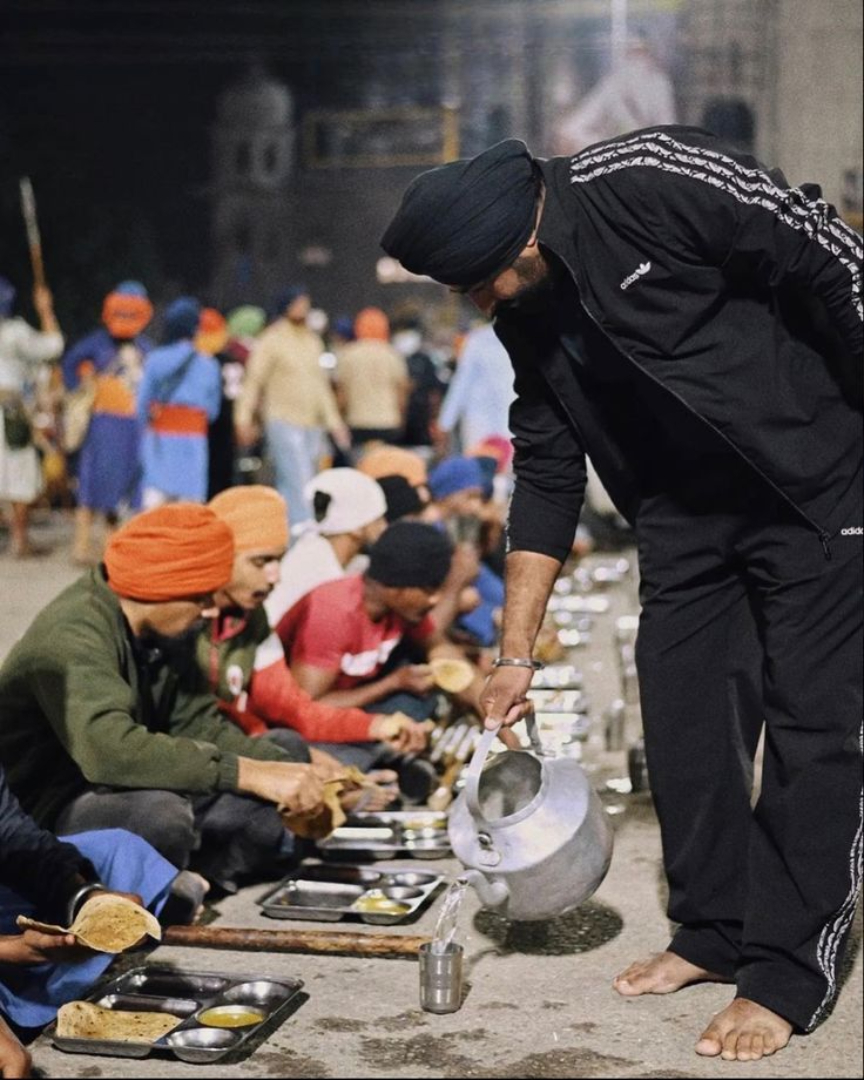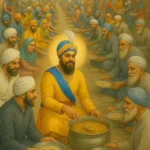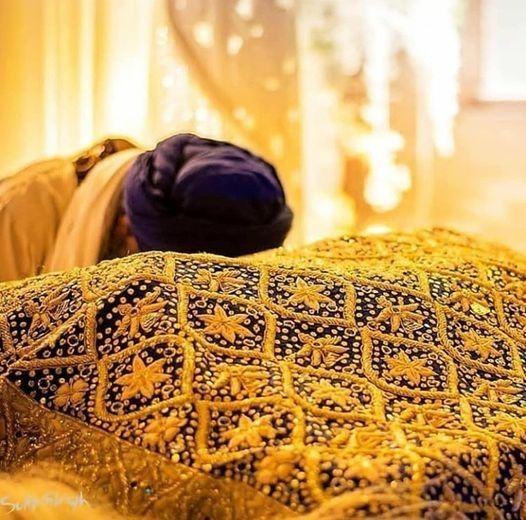The tradition of Guru ka Langar was established by Sri Guru Nanak Dev Ji not just to feed the hungry but to destroy ego, promote equality, and cultivate devotion. However, in today’s time, many people eat langar without understanding its true purpose. Let’s explore the real meaning of langar, its etiquette (maryada), and how we should partake in it.

1. The True Purpose of Langar
- Equality (Sarbat da Bhala): Langar breaks barriers of caste, religion, and social status—everyone sits together in pangat (a straight line).
- Humility (Nimrata): Serving and eating simple food reminds us to stay grounded.
- Service (Seva): The act of cooking, serving, and cleaning is as sacred as prayer.
- Naam Simran: Langar is not just food—it is Guru’s prasad, meant to nourish the soul.
Guru Nanak’s Message:
“First, feed the hungry; then, preach the Divine Name.”
2. Proper Etiquette (Maryada) of Eating Langar
✅ Only Eat If Truly Hungry
- If you have eaten at home, do not take langar just for taste.
- Leave it for those who genuinely need it—the poor, travelers, or devotees in deep meditation.
✅ Take Only What You Can Finish
- Wasting langar is a sin against seva.
- Even a single roti taken as prasad should be eaten with gratitude.
✅ Serve Before or After Eating
- Help in peeling vegetables, washing dishes, or serving water—no seva is small.
- If unable to serve physically, contribute donations (Golak) for langar expenses.
✅ Sit in Pangat (Line) with Humility
- No VIP culture—kings and beggars sit together.
- Maintain silence or listen to Gurbani while eating.
✅ Express Gratitude
- Before eating, recite “Waheguru” or “Dhan Guru Nanak”.
- After eating, do ardas (prayer) for the well-being of all.
3. What Langar is NOT Meant For
❌ A free meal without gratitude
❌ A restaurant-style buffet for taste
❌ A ritual to fulfill superstitions
Guru’s Warning:
“Those who eat langar without devotion or service eat poison.”
4. The Deeper Spiritual Lesson
Langar is a training ground for Sikh values:
- Sacrifice (Kurbani): Giving up ego and greed.
- Unity (Ekta): Sitting together as one.
- Contentment (Santokh): Being satisfied with simple food.
“The true test of a Sikh is not in eating langar, but in serving it.”
Final Thought
Next time you visit the Guru’s house, ask yourself:
- Am I eating langar out of hunger or habit?
- Have I contributed to seva today?
- Did I sit with humility and gratitude?
Let langar transform you—not just fill your stomach.
📿 Waheguru Ji Ka Khalsa, Waheguru Ji Ki Fateh!
(Share this message! Langar is a blessing—let’s honor it correctly.) 🙏








